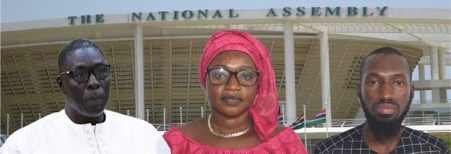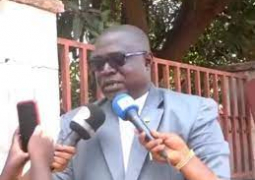
The loan is expected to be paid in 25 years.
The financing agreement is between the Government of The Gambia and the European Investment Bank on the Electricity Restoration and Modernization Project (GERMP) – also called Gambia Renewable Energy Project (GREP) and is the finance contract loan for component 4 of the Renewable Energy Project.
The 24-million-Euro investment grant is between the Government of The Gambia, the Sustainable Energy Services Company (SESCO) and the European Investment Bank, which is also on the Electricity Restoration and Modernization Project (GERMP) for component 4 of the Renewable Energy Project.
Stating the proposal before the lawmakers, Hon. Abdoulie Jobe, minister of Petroleum and Energy, who was speaking on behalf of the Finance minister, explained that the overarching objective of component 4 of the (GERMP) is the solarization of 1,000 schools and 100 health facilities across the country.
“One of the eight strategic priorities of the National Development Plan (NDP) 2018/22 is building our infrastructure and restoring energy services to power our economy,” he said. “The Gambia is experiencing an electricity shortage in certain parts of the country from the inability of the sector to meet the growing demand. Nevertheless, the government strives to attain universal access to electricity for all Gambians by 2025.”
He said the loan with the grant made the facility highly concessional with a grant element result of more than 80%, as he referenced the International Monetary Fund’s guidelines.
“The goal of the GERMP is to improve the electricity service of The Gambia, and component 4 of the project consists of on grade and off grade forto-voltaic battery system installation, operations and maintenance of up to 1,000 schools and facilities especially in remote areas of the country,” he explained.
“The core beneficiaries are the Ministry of Basic and Secondary Education (MOBSE) and Ministry of Health with 1,000 schools and 100 hospitals,” he said.
Hon. Lamin Ceesay, member for Kiang West Constituency, giving his submission, stated that the project implementers should consider local content.
“They should make sure citizens of the country are considered for the contracts to create employment, participatory and inclusiveness. This will show the readiness of the government's plan to reduce the unemployment rate,” he said.
Hon. Fatou Cham, the legislator for Sanimentereng Constituency, urged for the consideration of women in the project to help empower them to bridge the gender cap to promote equity and inclusiveness.





